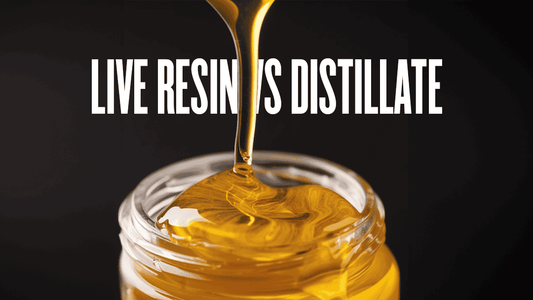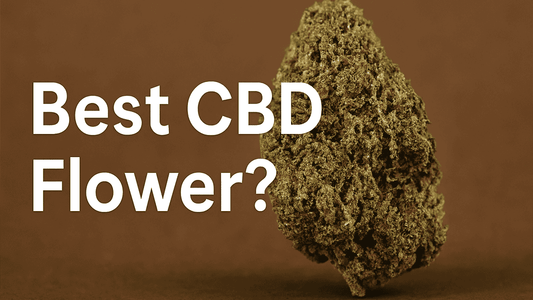CBD oil has gained immense popularity for its potential health benefits, from alleviating anxiety and chronic pain to enhancing sleep and overall well-being. However, knowing how to take CBD oil effectively can make a significant difference in its effectiveness. This guide will provide detailed insights into the various methods of taking CBD oil, tips for maximizing its benefits, and important considerations for choosing the right product.
Understanding CBD Oil

CBD, or cannabidiol, is a compound found in the hemp plant. Unlike THC (tetrahydrocannabinol), CBD does not produce a "high." Instead, it interacts with the body's endocannabinoid system, which regulates various physiological processes, including mood, pain, appetite, and sleep.
Methods of Taking CBD Oil

1. Sublingual Method (Under the Tongue)
- Steps:
- Shake the bottle well.
- Use the dropper to place the desired amount of CBD oil under your tongue.
- Hold the oil under your tongue for at least 60 seconds before swallowing.
- Benefits: This method allows quick absorption into the bloodstream, providing faster effects.
2. Ingestion (Swallowing)
- Steps:
- Add the CBD oil to your favourite food or beverage.
- Consume as you usually would.
- Benefits: This is an easy and discreet way to take CBD. However, it may take longer to feel the effects as the CBD needs to pass through the digestive system.
3. Topical Application
- Steps:
- Apply CBD cream directly to the skin over the affected area.
- Massage it in until fully absorbed.
- Benefits: Useful for localized pain relief and skin conditions.
4. Vaping
- Steps:
- Use a CBD vape pen or vape CBD flowers.
- Inhale the vapour deeply into your lungs.
- Benefits: Provides rapid effects as the CBD is quickly absorbed through the lungs.
5. Edibles
- Steps:
- Purchase or make your CBD-infused gummies, chocolates, or other treats.
- Consume as you would any other edible.
- Benefits: A tasty and convenient way to take CBD, though it may take longer to feel the effects.
Dosage Guidelines

Determining the correct dosage of CBD oil can be challenging as it varies based on individual factors such as body weight, metabolism, and the condition being treated. Start with a low dose and gradually increase it until you find the optimal amount for your needs.
General Guidelines
- Start Low and Go Slow: Begin with a low dose and gradually increase it until you achieve the desired effects.
- Consult with a Healthcare Professional: Especially if you take other medications or have underlying health conditions.
Specific Dosages
- Mild Symptoms (e.g., minor pain, mild anxiety): 10-20 mg per day
- Moderate Symptoms (e.g., moderate pain, significant anxiety): 20-40 mg per day
- Severe Symptoms (e.g., chronic pain, severe anxiety): 40-60 mg per day
Enhancing CBD Oil Absorption

Take Fatty Foods
CBD is fat-soluble, meaning it is better absorbed when taken with fat. Consuming CBD oil with foods like avocados, nuts, and fish can enhance absorption.
Use High-Quality Products
Look for CBD oil that is CO2-extracted and has a certificate of analysis (COA) from a third party. This ensures you are getting a pure and potent product.
Consistency is Key
For the best results, take CBD oil consistently. Daily use helps maintain stable levels of CBD in your system.
Common Questions and Answers
How Long Does it Take for CBD Oil to Work?
The onset time can vary depending on the method of consumption:
- Sublingual: 15-45 minutes
- Ingestion: 30 minutes to 2 hours
- Topical: 15-30 minutes
- Vaping: Almost immediate
Can I Overdose on CBD Oil?
CBD is generally considered safe and non-toxic. However, taking extremely high doses might cause mild side effects such as drowsiness or an upset stomach.
Is CBD Oil Legal?
In many places, CBD oil is legal if it contains less than 0.3% THC. Always check your local laws and regulations.
Choosing the Right CBD Oil
Not all CBD oils are created equal. Here are some factors to consider when selecting a high-quality product:
- Source of Hemp
- Ensure the CBD oil is sourced from organic, non-GMO hemp to avoid pesticides and other harmful chemicals.
- Extraction Method
- Look for CBD oil extracted using supercritical CO2 extraction. This method ensures a pure and potent product without residual solvents.
- Third-Party Testing
- Choose products with a certificate of analysis (COA) from third-party labs. This verifies the potency and purity of the CBD oil.
- Full-Spectrum vs. Isolate
- Full-spectrum CBD oil contains a range of cannabinoids, terpenes, and other beneficial compounds from the hemp plant, which work synergistically (known as the entourage effect). CBD isolate, on the other hand, contains only pure CBD.
Potential Side Effects and Precautions
While CBD oil is generally well-tolerated, some people may experience side effects such as dry mouth, diarrhoea, reduced appetite, drowsiness, or fatigue. It's essential to start with a low dose and observe how your body reacts. Additionally, CBD oil can interact with certain medications, so it's crucial to discuss its use with your healthcare provider if you are on prescription drugs.
Conclusion
CBD oil can be a game-changer for many individuals seeking natural relief from various conditions. Whether you prefer the quick absorption of the sublingual method, the convenience of oral ingestion, the targeted relief of topical application, or the rapid effects of inhalation, a technique suits your needs. Remember to start with a low dose, choose a high-quality product, and maintain consistency to experience the full benefits of CBD oil.

 4.6 Rating. Excellent.
4.6 Rating. Excellent.




